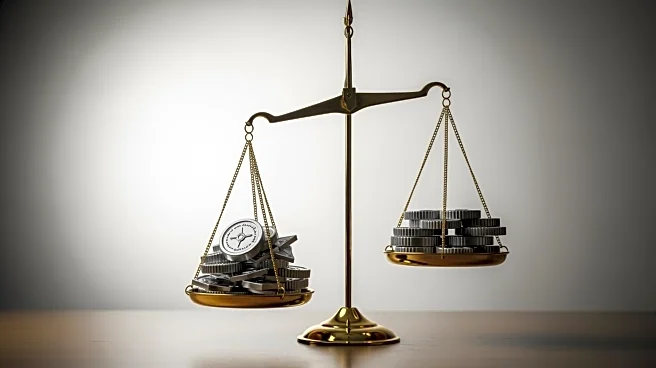What's Happening?
A group of nearly 50 prominent economists, including former Federal Reserve Chairs Ben Bernanke and Janet Yellen, have filed a brief with the U.S. Supreme Court urging the overturning of most of President Donald Trump's global tariffs. The economists argue
that these tariffs are based on misconceptions about the global economy and do not address the trade deficits they were intended to mitigate. The brief, submitted as a friend-of-the-court filing, contends that the tariffs will have a significant negative impact on the U.S. economy, affecting every household and state. The Supreme Court is set to hear oral arguments on the legality of these tariffs on November 5. The economists' filing is part of a broader set of submissions from various groups, including former federal judges and national security officers, supporting the companies challenging the tariffs.
Why It's Important?
The economists' challenge to President Trump's tariffs highlights a significant debate over U.S. trade policy and its economic implications. If the Supreme Court decides to overturn the tariffs, it could lead to a shift in how the U.S. engages in international trade, potentially reducing costs for American consumers and businesses. The tariffs have been criticized for not effectively addressing trade deficits and for imposing additional economic burdens. The outcome of this case could influence future trade policies and the U.S.'s approach to international economic relations. Stakeholders such as importers, exporters, and consumers stand to be directly affected by the Court's decision, which could either alleviate or exacerbate current economic pressures.
What's Next?
The Supreme Court's decision on the legality of the tariffs will be closely watched by various stakeholders, including businesses, economists, and policymakers. If the Court rules against the tariffs, it could prompt a reevaluation of current trade policies and lead to new strategies for addressing trade imbalances. Additionally, the decision may influence future administrations' use of emergency powers to impose tariffs. The case also sets a precedent for how economic arguments are considered in legal challenges to trade policies.















